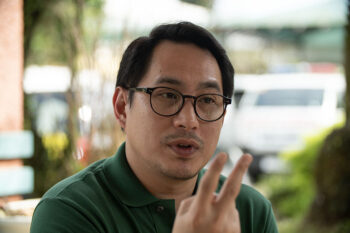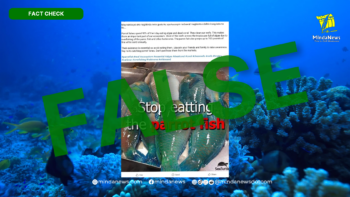MELBOURNE (MindaNews / 18 March) — With the overhaul of our entire political system now underway, I am reminded of a question posed by Gregorio J. Tingson, then Chairman of the Committee on Preamble, National Territory, and Declaration of Principles of the 1986 Constitutional Commission (Con-Com):
“Is it possible to capture in a few words the soul of our country? I doubt it very much. Madam President. But if it were possible, then I say that those words should form the Preamble to the Constitution we are writing.” (Record of the Constitutional Commission, Volume 1, June 11, 1986, p117)
While the constitutional text itself is a means to establish a national ethos, it is commonly through the preamble where it is articulated. Notably, one source of pride for the members of the 1986 Con-Com is the inclusion of the word “love” in the Preamble of the 1987 Constitution. An unconventional insertion which obviously came from the “high” caused by the immediately preceding EDSA Revolution.
However, a good example of a preamble expressing a state philosophy is the constitution of Indonesia. Pancasila is the acknowledged foundational belief of the Indonesian state. It encompasses five principles which are deeply connected and expressed this way: “…a constitution of the sovereign Republic of Indonesia which is based on the belief in (1) the One and Only God, (2) just and humanity, (3) the unity of Indonesia, (4) democracy guided by the inner wisdom of deliberations amongst representatives and (5) the realization of social justice for all of the people of Indonesia.”
For Filipinos, the charter change effort is a chance to re-define the country’s national ethos. Interestingly, for Bishop Teodoro Bacani, the prime proponent of including “love” in the current preamble, this word meant “pakikipagkapwa-tao”. This is a fundamental socio-cultural tradition all Filipinos are familiar with. Indeed, we more often refer to this as bayanihan.
Every Filipino has been taught that bayanihan is the indigenous cultural phenomenon of community solidarity. It is a “bayan” demonstrating the will to work together to achieve a task. It is the manifestation of an individual’s innate capacity to see himself as merely a part of the larger whole. Indeed, it is the spirit that pushes one to freely act for the benefit of the group.
As Apolinario Mabini advised in The True Decalogue: “Always look on your countryman as more than a neighbor: you will find in him a friend, a brother and at least the companion to whom you are tied by only one destiny, by the same happiness and sorrows, and by the same aspirations and interests.”
Officially recognizing bayanihan in our new charter’s preamble as the national ethos can revitalize community empathy in psyche of the 21st century Filipino. Correspondingly, an outlook underscored by social responsibility can put an abrupt end to the anti-social behaviour often displayed in the public sphere these days (i.e. littering and counter-flowing just to name a few).
More profoundly though, incorporating bayanihan in the new constitution can countervail the self-centered mindset undermining our communities. This fundamental reform can in turn facilitate the strengthening of every Filipino’s resolve to be a responsible citizen of the republic. The inevitable outcome here then is a robust nation-building effort which can bring the country out of its current sorry state.
We see glimpses of the bayanihan spirit now in the formation of groups such as Tindig Pilipinas, Tapang at Malasakit, and Laban ng Masa. These peoples’ mobilizations mean the revival of this indigenous social tradition in Filipino society today is still possible. Its unequivocal entrenchment as a constitutional tenet is a good first step.
The most familiar illustration of bayanihan is the image of a bahay-kubo being carried by the community. However, I think a more authentic representation would be the Banaue Rice Terraces.
This wonder of the world is testament to a community singular in its goal to thrive. No individual can lay claim to this utter mastery of the mountains. Indeed, it is incontrovertible proof of the power of collective action.
As the President proudly asserted in his second State of the Nation Address, “For as I saw it then as I see it now, there is no problem in the world which can stop the march of a people with unflinching and tenacious determination.” Hence, if indeed change is to come, it must be by all of us, hand in hand. (MindaViews is the opinion section of MindaNews. The author is a law lecturer, author, legislative and policy consultant and Non-Resident Research Fellow at the Ateneo School of Government)







